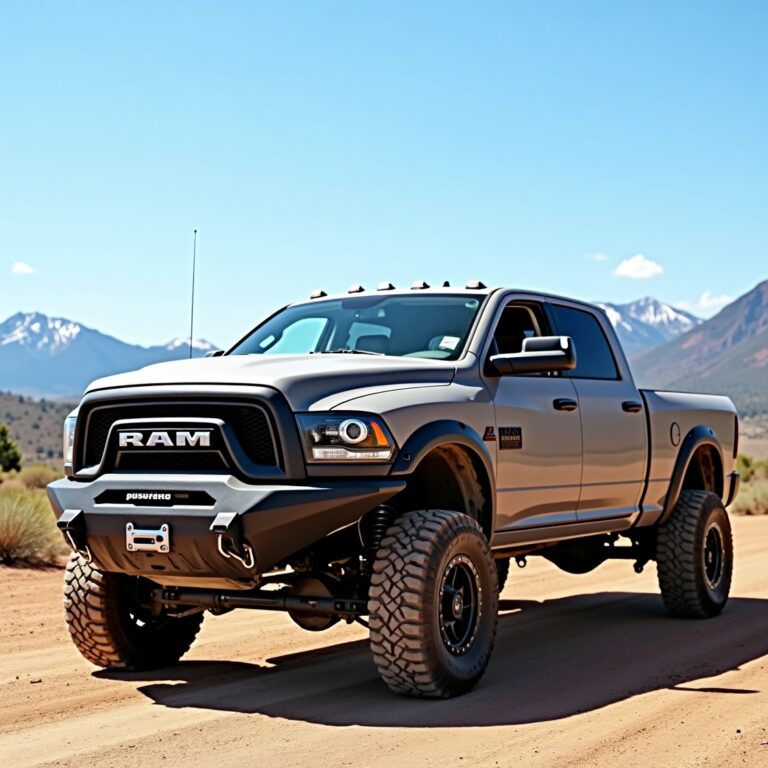The Unsung Hero: A Comprehensive Guide to Light Truck Service

The Unsung Hero: A Comprehensive Guide to Light Truck Service
Light trucks, encompassing a vast array of pickups, SUVs, and commercial vans, are the workhorses of our roads. From hauling construction materials and towing boats to navigating challenging terrains and serving as the family’s primary transport, these versatile vehicles endure demands far beyond those placed on a typical passenger car. This inherent ruggedness, however, comes with a critical caveat: they require specialized and meticulous care. Light truck service is not merely an oil change; it’s a comprehensive regimen designed to ensure these vehicles remain safe, reliable, and efficient under the toughest conditions. Neglecting this vital maintenance can lead to costly repairs, compromised safety, and a significantly shortened lifespan for your valuable asset.
Understanding Light Truck Service: Beyond the Basics
At its core, light truck service is the systematic inspection, maintenance, and repair of components unique to or heavily stressed in light-duty trucks. While some aspects overlap with passenger car maintenance, the scale, frequency, and specialized nature of light truck service set it apart.
Why is it different?
- Heavier Loads: Light trucks are designed to carry and tow significant weight, putting immense stress on the engine, transmission, brakes, suspension, and chassis.
- Diverse Usage: Many light trucks are used for commercial purposes, off-roading, or frequent towing, leading to accelerated wear and tear compared to a daily commuter car.
- Specialized Components: They often feature heavy-duty axles, larger braking systems, robust suspension components, and specific drivetrain configurations (e.g., 4×4 transfer cases, limited-slip differentials) that require unique fluids, parts, and expertise.
- Larger Fluid Capacities: Engines, transmissions, and differentials typically hold more fluid, requiring larger quantities during service.
Benefits of Proper Light Truck Service:
- Extended Vehicle Lifespan: Regular maintenance prevents minor issues from escalating into major, system-destroying problems.
- Enhanced Safety: Well-maintained brakes, tires, and steering components are crucial for controlling a heavy vehicle, especially under load.
- Improved Performance & Fuel Efficiency: Clean filters, fresh fluids, and properly tuned engines ensure optimal power delivery and prevent unnecessary fuel consumption.
- Reduced Breakdown Risk: Proactive service identifies potential failures before they leave you stranded.
- Higher Resale Value: A comprehensive service history is a strong selling point, demonstrating diligent care.
- Cost Savings: Preventing major repairs through routine maintenance is almost always cheaper than fixing a catastrophic failure.
Key Components and Systems Requiring Regular Attention
To truly appreciate light truck service, it’s essential to understand the critical systems that demand consistent oversight:
-
Engine & Powertrain:
- Oil & Filter Changes: Often more frequent than cars, especially with heavy use or towing. Synthetic oils are highly recommended for their stability under high temperatures and loads.
- Air & Fuel Filters: Crucial for engine longevity and performance, particularly for diesel trucks where fuel filter changes are more frequent.
- Belts & Hoses: Inspect for cracks, fraying, or leaks. Drive belts (serpentine belts) are vital for accessories like the alternator and power steering.
- Cooling System: Regular coolant flushes prevent overheating, which is a major concern for engines under heavy load.
-
Transmission & Drivetrain:
- Transmission Fluid & Filter: Absolutely critical for automatic transmissions, especially those that tow. Heat is the enemy of transmission fluid, breaking it down quickly.
- Differential Fluid: Front and rear differentials (and sometimes a center differential in AWD systems) require specific gear oil changes to protect gears from wear.
- Transfer Case Fluid (4×4/AWD): The transfer case, which distributes power between axles, also needs its dedicated fluid changed regularly.
- U-Joints & Driveshafts: Inspect for play or noise, especially if you experience vibrations.
-
Brakes:
- Light trucks have larger, more robust braking systems. Regular inspection of pads, rotors, calipers, and brake fluid is paramount.
- Brake fluid absorbs moisture over time, reducing its effectiveness and potentially corroding internal components. A brake fluid flush is often recommended.
-
Suspension & Steering:
- Shocks & Struts: These absorb road impacts. Worn components compromise ride quality, handling, and tire wear, especially important with heavy loads.
- Ball Joints & Tie Rod Ends: Critical for steering precision and safety. Inspect for excessive play.
- Wheel Bearings: Listen for humming noises, which can indicate failing bearings.
- Alignment: Proper wheel alignment is crucial for tire longevity and safe handling, particularly for trucks that experience heavy loads or off-road excursions.
-
Tires:
- Load Rating: Light trucks use "LT" (Light Truck) rated tires, designed for heavier loads and more aggressive use. Ensure your tires match your truck’s requirements.
- Rotation & Balancing: Regular rotation ensures even wear. Balancing prevents vibrations and extends tire life.
- Pressure: Maintaining correct tire pressure (as specified on the door jamb sticker, not the tire sidewall) is vital for safety, fuel economy, and tire wear, especially when loaded.
-
Electrical System:
- Battery: Truck batteries are larger and work harder. Test regularly, especially in extreme climates.
- Alternator & Starter: Ensure they are functioning correctly to power the vehicle and its accessories.
Routine Maintenance Schedule for Light Trucks
While your owner’s manual is the definitive guide for your specific vehicle, a general framework for light truck service intervals often looks like this:
-
Every 3,000 – 7,500 Miles (or 3-6 Months):
- Oil and filter change (conventional vs. synthetic dictates interval).
- Inspect all fluid levels (coolant, brake, power steering, washer).
- Check tire pressure and condition, rotate tires.
- Inspect belts, hoses, and lights.
- Visual inspection of brakes, suspension, and exhaust.
-
Every 15,000 – 30,000 Miles (or 12-24 Months):
- All 3,000-7,500 mile services.
- Replace engine air filter and cabin air filter.
- Inspect/replace spark plugs (if applicable).
- Inspect brake pads and rotors thoroughly, potentially flush brake fluid.
- Inspect suspension and steering components in detail.
- Check differential and transfer case fluid levels.
-
Every 30,000 – 60,000 Miles (or 2-5 Years):
- All previous services.
- Transmission fluid and filter service (more frequent if towing heavily).
- Differential and transfer case fluid changes.
- Coolant flush.
- Inspect/replace drive belts.
- Thorough inspection of universal joints (U-joints) and driveshaft.
- Wheel alignment check.
Actionable Insight: Always refer to your truck’s owner’s manual. If you frequently tow, carry heavy loads, or drive in dusty/harsh conditions, consider adhering to the "severe duty" maintenance schedule, which often shortens service intervals.
Choosing the Right Service Provider
Deciding where to service your light truck is a crucial decision:
- Dealerships: Often have brand-specific training, specialized tools, and access to genuine OEM parts. They are excellent for warranty work or complex, brand-specific issues. However, labor rates can be higher.
- Independent Shops: Many independent shops specialize in light trucks and off-road vehicles. They can offer competitive pricing, personalized service, and often use aftermarket parts that can be as good as or better than OEM. Look for shops with ASE-certified technicians.
Tips for Choosing a Shop:
- Reputation: Check online reviews and ask for recommendations.
- Certification: Look for ASE (Automotive Service Excellence) certifications, particularly in areas like brakes, suspension, and engine repair.
- Specialization: Does the shop frequently work on light trucks? Do they have the necessary heavy-duty lifts and diagnostic equipment?
- Transparency: Do they provide clear explanations of services needed, written estimates, and show you worn parts?
- Warranty: Do they offer a warranty on their parts and labor?
DIY vs. Professional Service
Some light truck owners enjoy tackling maintenance themselves, but it’s vital to know your limits:
-
What You Can DIY (if comfortable and equipped):
- Fluid level checks (oil, coolant, brake, power steering).
- Tire pressure checks and visual inspections.
- Wiper blade replacement.
- Basic light bulb replacement.
- Air filter and cabin air filter replacement.
- Basic oil and filter changes (ensure proper disposal of used oil).
-
What You Should Leave to Professionals:
- Complex diagnostics (check engine lights, transmission issues).
- Brake system overhauls (calipers, master cylinder).
- Transmission fluid and filter changes (especially if involving pan drops or flushes).
- Suspension and steering component replacements (ball joints, tie rods, shocks/struts).
- Engine repairs (timing belts, major leaks).
- Any service requiring specialized tools, computer reprogramming, or heavy lifting equipment.
Safety First: Always use jack stands, wear appropriate safety gear, and ensure you have the correct tools for any DIY job. Remember, light trucks are heavy and can be dangerous if not handled properly.
Common Challenges and Solutions in Light Truck Service
- Higher Service Costs: Larger parts, more fluids, and specialized labor mean light truck service can be more expensive than for passenger cars.
- Solution: Adhere strictly to preventative maintenance schedules to avoid costly major repairs. Shop around for parts and labor, and consider independent shops.
- Specialized Parts & Fluids: Light trucks often require specific types of oil, transmission fluid, or even unique filters. Using the wrong product can lead to premature wear or failure.
- Solution: Always consult your owner’s manual or a trusted mechanic. Ensure your chosen service provider uses the correct specifications.
- Accelerated Wear from Heavy Use: Consistent towing, off-roading, or commercial hauling can put immense stress on components, leading to faster wear.
- Solution: Follow the "severe duty" maintenance schedule in your owner’s manual. Be proactive about inspecting wear items like brakes, suspension, and tires.
- Rust and Corrosion: Especially for trucks in areas with road salt or high humidity, frame and underbody rust can be a significant issue.
- Solution: Regular washing, particularly after driving on salted roads. Consider professional undercoating treatments to protect vulnerable areas. Address any rust spots promptly before they spread.
Estimated Light Truck Service Price Table
Please note: These prices are estimates and can vary significantly based on vehicle make/model, geographic location, parts quality (OEM vs. aftermarket), and labor rates of the service provider. Always get a detailed quote before authorizing work.
| Service Type | Description | Estimated Cost Range ($) | Typical Frequency |
|---|---|---|---|
| Oil Change (Conventional) | Standard oil & filter change | $50 – $80 | 3,000 – 5,000 miles / 3-6 months |
| Oil Change (Full Synthetic) | Full synthetic oil & filter change | $80 – $150 | 7,500 – 15,000 miles / 6-12 months |
| Tire Rotation & Balance | Rotate tires, balance all wheels | $30 – $70 | 5,000 – 7,500 miles |
| Brake Pad Replacement (Front) | Replace front brake pads, inspect rotors/calipers | $250 – $500 | As needed (wear dependent) |
| Brake Pad & Rotor Replacement (Front) | Replace front pads & rotors, inspect calipers | $400 – $800 | As needed (wear dependent) |
| Transmission Fluid Service | Drain/fill fluid, replace filter (if applicable) | $200 – $500 | 30,000 – 60,000 miles (more for towing) |
| Differential Fluid Service | Replace fluid in front/rear differential | $100 – $200 (per axle) | 30,000 – 60,000 miles |
| Transfer Case Fluid Service (4×4) | Replace fluid in transfer case | $80 – $150 | 30,000 – 60,000 miles |
| Spark Plug Replacement | Replace all spark plugs, inspect ignition system | $150 – $400 | 30,000 – 100,000 miles (material dependent) |
| Coolant Flush | Drain old coolant, flush system, refill with new | $100 – $250 | 30,000 – 60,000 miles / 2-5 years |
| Wheel Alignment (4-wheel) | Adjust suspension angles for proper wheel alignment | $80 – $150 | Annually or as needed (e.g., after suspension work) |
| Air Filter Replacement | Replace engine air filter | $30 – $70 | 15,000 – 30,000 miles / Annually |
| Cabin Air Filter Replacement | Replace cabin air filter | $40 – $80 | 15,000 – 30,000 miles / Annually |
| Battery Replacement | New battery, installation, terminal cleaning | $150 – $300 | 3-5 years or as needed |
| Diagnostic Fee (Check Engine Light) | Computer scan, basic diagnosis to identify issue | $80 – $150 (often waived if repair performed) | As needed |
Frequently Asked Questions (FAQ) About Light Truck Service
Q: How often should I service my light truck?
A: Always follow the maintenance schedule in your owner’s manual. For most trucks, basic service (oil, filters, tire rotation) is every 5,000-7,500 miles, with more comprehensive services every 15,000, 30,000, and 60,000 miles. If you tow heavily, go off-road, or operate in extreme conditions, refer to the "severe duty" schedule.
Q: Is synthetic oil worth it for a light truck?
A: Absolutely. Synthetic oil offers superior protection against wear, performs better in extreme temperatures (hot and cold), and extends drain intervals, making it an excellent investment for hardworking light truck engines.
Q: What’s the difference between car and light truck tires?
A: Light truck (LT) tires are designed with stronger sidewalls, deeper treads, and higher load capacities than passenger car (P) tires. They are built to withstand heavier loads, provide better traction for towing/hauling, and offer more durability, often at the expense of a slightly firmer ride. Always use LT tires on a light truck if specified by the manufacturer.
Q: Why are light truck services more expensive than car services?
A: Light trucks generally use larger quantities of fluids (oil, transmission fluid, coolant), larger and more robust parts (brakes, tires, suspension components), and sometimes require specialized tools or heavier-duty lifts, all of which contribute to higher material and labor costs.
Q: Can I use regular passenger car parts on my light truck?
A: No. It’s crucial to use parts specifically designed for light trucks. Passenger car parts are not built to withstand the heavier loads, stresses, and operating conditions of a truck, which can lead to premature failure, compromised safety, and costly damage.
Q: What are the signs my truck needs service?
A: Common signs include dashboard warning lights (check engine, ABS), unusual noises (squealing brakes, grinding, clunking), strange smells (burning oil, coolant), vibrations, reduced fuel economy, poor braking performance, or a noticeable change in handling or acceleration.
Q: Should I go to a dealership or an independent shop for service?
A: Both have pros. Dealerships offer brand-specific expertise and genuine OEM parts, often best for warranty work. Independent shops can provide more competitive pricing, personalized service, and specialize in light truck repair. Research their reputation and certifications, and choose based on your specific needs and budget.
Conclusion
Light trucks are more than just vehicles; they are indispensable tools, capable companions, and significant investments. The longevity, safety, and performance of these workhorses hinge directly on a commitment to consistent, specialized light truck service. By understanding the unique demands placed on these vehicles, adhering to recommended maintenance schedules, and entrusting their care to qualified professionals, owners can ensure their light trucks continue to serve faithfully for years to come. Proactive service isn’t an expense; it’s a strategic investment that pays dividends in reliability, safety, and ultimate peace of mind.


